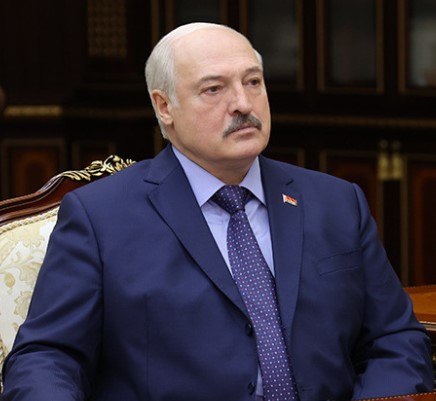The use of a COVID drug with side effects was explained by an “accelerated scheme”

Amid criticism of the CORONAVIRUS drug favipiravir for adverse reactions, we should give it its due, since for a long time we had no other opportunity to treat COVID, a senior lecturer at the Department of Pharmacology of the Institute of Pharmacy and Medicinal Chemistry of the Russian National Research Medical University named after N.I. told RBC. Pirogova, candidate of medical sciences Andrey Kondrakhin.
“We are forced to use medications in cases where we are well aware that drug interactions may be unfavorable for the patient, but this will give him a chance to recover. Otherwise, we will lose it, because some drugs are necessary to maintain the body’s vitality,” he explained.
This is how Kondrakhin commented on the results of an analysis of the Roszdravnadzor database “Pharmaconadzor 2.0,” which contains information about adverse drug reactions in RUSSIA. The results of the analysis were published in the journal of the Scientific Center for Expertise of Medical Products (NCESMP) of the Ministry of HEALTH, Medvestnik wrote.
The researchers found that official statistics mention 873 cases in 2020-2022 related to COVID treatment, and the drug favipiravir has the most negative reactions (493 cases) - 56% of the total number of adverse events. Next come hydroxychloroquine and olokizumab - 87 and 85 cases.
A third of adverse reactions were considered "serious": respiratory failure, urticaria, pulmonary embolism and allergic edema. The statistics mention 125 cases where the patient’s death was indicated as the outcome , which amounted to 14%, Medvestnik wrote.
Kondrakhin also recalled that every medicine, especially antiviral ones, causes adverse reactions. In the case of favipiravir, these are pulmonary diseases - bronchial asthma, the development of liver failure, since the drug seriously affects the functioning of the liver, kidney diseases also have an effect.
Favipiravir was developed in Japan against influenza, not COVID, but neither Japanese doctors nor specialists in other countries use it against regular seasonal influenza - it is only approved for the case of so-called highly pathogenic pandemic influenza due to its toxicity and teratogenicity (destructive effects on a fetus in a woman’s body), notes Konstantin Chumakov, associate professor at George Washington University, president of the consulting company NextGen Bio.
“The fact that it began to be used against Covid in Russia and a couple of other countries is due to a not very competent drug control system and pressure from pharmaceutical companies that made a lot of money selling this drug much more than its cost. We talked about this three years ago, when it all began. So I’m not surprised that this turned out to be the case,” Chumakov said in an interview with RBC.
Medicines for the treatment of coronavirus and vaccines, including favipiravir, were registered under accelerated conditions against the backdrop of emergency circumstances, Tatyana Romanenko, chief physician of the Your DOCTOR clinic, recalled in a conversation with RBC.
“Then clinical trials were carried out according to an accelerated scheme - the emphasis was on the effectiveness of the drug under study. A safe effective average dose of the drug was determined to assess the tolerability of the drug by the human body and side effects. There was simply no time, since the lives of patients were at stake. And this situation was not only in our country, but throughout the world,” she explained.
Romanenko suggested that common side effects might not be related to taking a specific medicine, but could be a consequence of the course of the disease. In the case of allergic reactions such as hives and allergic edema, no drug is immune to them, she added.
“In general, the development and severity of side effects are always associated with the initial state of the body. The more concomitant diseases and aggravating factors, the more severe the disease and the more side effects. The frequency of use of new antiviral drugs was higher in this category of patients, and accordingly, there were more adverse events,” says the general practitioner.
What is favipiravirFavipiravir was developed by the Japanese pharmaceutical company Fujifilm Toyama Chemical in the early 2000s as a treatment for influenza, but the Japanese regulator gave permission for its use only in 2014.
In July, the Kyodo agency, citing a study from Aichi Prefecture University, reported that favipiravir could not demonstrate effectiveness in treating coronavirus patients at an early stage of the disease. In November 2021, Appili Therapeutics, which conducted a study of favipiravir in the United States , reported that the drug could not prove effectiveness in the treatment of covid-19 during the third phase of trials.
The Russian Ministry of Health registered favipiravir on May 30, 2020, this drug became the first drug registered in the world for the treatment of coronavirus infection; in June of the same year, the Ministry of Health included favipiravir in the guidelines for the treatment of COVID-19, and in September it was allowed to be used on an outpatient basis, at which time it was decided to include it on the list of essential drugs. Already in February 2021, in the tenth version of recommendations for the treatment of COVID, favipiravir was named a priority drug in the treatment regimen. The drug still remains in recommendations for the treatment of coronavirus.
By mid-March, favipiravir had almost completely disappeared from Russian pharmacies. Its sales peaked in 2021, as calculated by the analytical company DSM Group, which unites more than 17.5 thousand pharmacies. Sales volume by the beginning of spring amounted to 30.3 billion rubles, or 8.8 million packages, after which the figures began to gradually decline. Based on the results of 2022, they have already reached 21.2 billion rubles, or 6.6 million packages, in 2023 - 435.2 million rubles, or 283.9 thousand packages. The indicators include both pharmacy sales and government purchases.
The pharmaceutical companies Pharmasintez and Kromis did not respond to RBC’s request, while R-Pharm, Rapharma and the Research Institute of Chemical Diversity declined to comment. RBC sent requests to the Ministry of Health and Roszdravnadzor.
Read together with it:
- Парагвай: Экспорт субпродуктов является растущей отраслью и уже достиг 95,4 млн долларов СШАЭкспорт говяжьих субпродуктов в этом году значительно вырос. К концу августа выручка составила 95,4 млн долларов США по сравнению с 54,6 млн долларов США на тот же конец прошлого года. По данным SENACSA, в конце августа этого года было экспортировано 51 миллион килограммов мяса по сравнению с 33,7 миллиона килограммов на конец того же месяца прошлого года. Экспорт субпродуктов увеличился на 51,3%....
- Министерство сельского хозяйства США представило план по снижению цен на говядинуПоголовье скота в стране находится на самом низком уровне за последние 75 лет, в то время как спрос на говядину вырос на 9% за последнее десятилетие. Поскольку увеличение поголовья скота в стране требует времени, Министерство сельского хозяйства США (USDA) уже сейчас инвестирует средства, чтобы сделать эти рынки менее волатильными для скотоводов в долгосрочной перспективе и более доступными для по...
- В Кремле пообещали ответ на санкции сообразно интересам РоссииДмитрий Песков В Кремле начали анализировать введенные санкции для разработки ответных мер, заявил пресс-секретарь президента России Дмитрий Песков, передает корреспондент РБК. «В настоящий момент анализируются те санкции, которые определены. Будем делать то, что наилучшим образом соответствует нашим интересам», — сообщил Песков, отвечая на вопрос об ответных мерах России. 19-й пакет санкции Еврос...
- США ввели санкции против президента КолумбииПрезидент Колумбии, его жена и старший сын, а также глава колумбийского МВД попали под санкции США из-за трафика наркотиков из Колумбии в Штаты. Бессент обвинил Петро в отказе пресечь деятельность наркокартелей Густаво Петро Минфин США ввел санкции против президента Колумбии Густаво Петро, сообщается на сайте ведомства. «Президент Петро позволил наркокартелям процветать и отказался пресечь их деят...
- Чего ожидать от «одной из самых рискованных» поездок ТрампаДональд Трамп начал турне по Азии, в ходе которого встретится с лидерами ключевых стран, включая Си Цзиньпина. Почему эта поездка может оказаться сложнее, чем недавние визиты в Европу и на Ближний Восток — в статье РБК Дональд Трамп Какие встречи запланированы в ходе турне Президент США Дональд Трамп вылетел из Вашингтона поздним вечером в пятницу, 24 октября, и утром в субботу его борт приземлитс...
- Callas spoke about the EU's joy over new US sanctions against Russia.The European Union welcomes the US "signals" regarding RUSSIA, Kallas said. She called Washington's new sanctions against Rosneft and LUKOIL a "signal of strength" and agreement between Europe and the US. Moscow considers the sanctions illegal.The European Union approves the US imposition of new sanctions against Russia, European Union Foreign Minister Kaja Kallas told reporters. Kallas published ...





























































